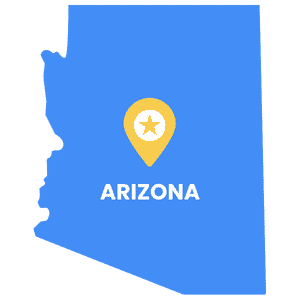Colorado State Information Page
Current Legality State – Colorado
Fully Legal
- Medical and recreational marijuana is legalized.
- Decriminalized statewide for personal use
- Possession of two ounces is acceptable for adults.
- Cultivation of six plants (three flowering marijuana plants at a time) is allowed for personal use.

Current Legality State
Fully Legal

- Medical and recreational marijuana is legalized.
- Decriminalized statewide for personal use
- Possession of two ounces is acceptable for adults.
- Cultivation of six plants (three flowering marijuana plants at a time) is allowed for personal use.
Medical Cannabis Savings
Taxes explained and the benefits of getting your medical card in Arizona
Recreational Marijuana Taxes in Colorado
15% excise tax
Medical Marijuana Taxes in Colorado
2.9% excise tax
Your cannabis AI assistant
Tailored recommendations for your favorite
Sign up below for early access
*By signing up, you agree to the Terms and Conditions and Privacy Policy.
California residents, see our CA Privacy Notice.
Is Cannabis Legal In Colorado ?
Recreational marijuana has been legal in Colorado since 2012 for adults, and medical marijuana has been legal since 2000 for medical cardholders and caregivers.
State Laws and Offenses
Here’s a list of Colorado law penalties for possession, sale, and distribution of marijuana, concentrate, or paraphernalia.
- Marijuana is a Schedule I substance according to Colorado state law
- Under federal law, cannabis is still considered a Schedule I Controlled Substance and is federally illegal.
- Private possession by persons 21 years of age or older of up to two ounces of either cannabis flower or concentrates is no civil penalty
- Private cultivation of up to six marijuana plants, with no more than three being mature is no penalty. Transfer of two ounces or less for no remuneration is no penalty.
- Transfer of two ounces or less for no remuneration by persons 21 years of age or older is no penalty. The same rules apply to hashish and marijuana concentrate.
- Possession of paraphernalia is a drug petty offense that is punishable by a fine of up to 100 USD. Stricter laws for subsequent marijuana convictions may occur.
Find Colorado Dispensaries Nearby Find Dispensaries Connect With A Doctor
Colorado allows patients with the following conditions to apply for a medical cannabis card:
- Any “condition for which a physician could prescribe an opioid”
- Autism spectrum disorder
- Cachexia
- Cancer
- Chronic pain
- Chronic nervous system disorders
- Glaucoma
- HIV or AIDS
- Nausea
- Persistent Muscle Spasms
- Post Traumatic Stress Syndrome
- Seizures
Does Colorado accept out-of-state medical cards?
Colorado does not accept out-of-state medical cards, but an adult medical patient can visit a legal dispensary to buy marijuana from marijuana stores with an ID.
When does my Colorado medical card expire?
Medical cards expire one year from the date the patient completes the registration process with the state.
Get a Colorado Medical Marijuana Card
Colorado marijuana DUI laws
Here are the penalties in Colorado for operating a motor vehicle under the influence:
- A first offense for consuming marijuana while driving under the influence can result in a criminal citation, imprisonment for a mandatory minimum of five days to no more than one year, a 1,000 USD fine, up to 96 hours of applicable public service, and a possible probation period of up to two years.
- An offender may also be subject to a chemical test to find the amount of THC per milliliter of blood.
- The second offense can result in imprisonment for a mandatory minimum of ten days of jail time to no more than one year, a 1,500 USD fine, 120 hours of valuable public service, and a probationary period of at least two years.
- Third and subsequent offenses can result in imprisonment in county jail for a mandatory minimum of sixty consecutive days up to one year, mandatory participation in court-ordered alcohol and drug driving safety education or treatment program, up to a 1,500 USD fine, up to 120 hours of applicable public service, and a probationary period of at least two years.
If a resident were to cross state lines with marijuana products, the penalties could be harsher, especially on illegal federal land.
Colorado marijuana growing laws
Any adult Colorado resident can grow up to six plants, with no more than three plants in the flowering stage. Non-Colorado residents are not allowed to cultivate cannabis.
No more than twelve whole plants are allowed per residence. Growers must keep cannabis plants in an enclosed, locked area out of view. Homegrown cannabis products can not be sold to others, but up to an ounce may be gifted.
Colorado public consumption laws
In Colorado, marijuana use is illegal and residents are not authorized to consume marijuana in public places including:
- Sidewalks
- National Parks and other federal lands
- amusement parks
- Ski resorts, ski slopes, or hotel rooms
- Transportation facilities
- Denver International Airport
- Concert venues
- Businesses
- Restaurants, cafes, or bars
- School property (students caught will face penalties)
- Common areas of apartment buildings or condominiums
- A private property without the permission of the property owner
Colorado city specific laws
The laws listed here are for the state. Cities, counties, schools, universities, and employers may set their own rules and consequences. Be sure to check how marijuana laws differ in each county or town before you use.
How to get a medical marijuana card in Colorado
These are the steps to getting a medical marijuana card with the help of Leafy DOC
-
Book An Appointment
- You will schedule an appointment to see a medical marijuana doctor in Colorado at a time that is most convenient for you. Provide basic medical history and book your appointment with a licensed medical marijuana doctor.
-
Evaluation
- Consult with a doctor for a quick evaluation of your ailments, and ask any questions you may have about medical marijuana treatment.
-
Approval
- Within 24 hours after the evaluation, the doctor will send your certificate via email for your recommendation for medical marijuana. After receiving that recommendation, you can then apply with the state of Colorado to complete the registration process.

Book your appointment
- Easily make appointment online
- Skip unnecessary doctor office visits
- Provide basic medical history

Match with a Doctor
- Connect w/ the right doctor for you.
- Thorough evaluation via phone or video call.
- Provider will answer any questions.

Get your Medical Card
- Upon Approval you’ll receive confirmation email
- Receive a temporary card or card in the mail
- Enjoy the benefits of being a medical card holder!
Cannabis Policy Reform Timeline
1937: The Marihuana Tax Act went into effect to criminalize marijuana in the state of Colorado.
1975: Colorado decriminalized possession of cannabis of up to an ounce, which was made a petty offense per Colorado laws with a maximum fine of 100 USD.
2000: Voters approved Amendment 20 to legalize medical marijuana and for the colorado department of public health to establish its own rules for medical marijuana patients.
2010: Decriminalization amount extended the legal limit to two ounces from up to one ounce.
2012: Amendment 64 was passed by voters to legalize weed recreationally for adults over 21 and to allow licensed businesses to sell retail marijuana products to state residents.
2014: Amendment 64 was accepted and marijuana for recreational use was fully legalized for Colorado residents.
Some of the Current Cannabis Bills in Colorado
- CO HB1209 – Marijuana Regulation Streamline
- CO SB076 – Intoxicating Substances & Social Equity Business








